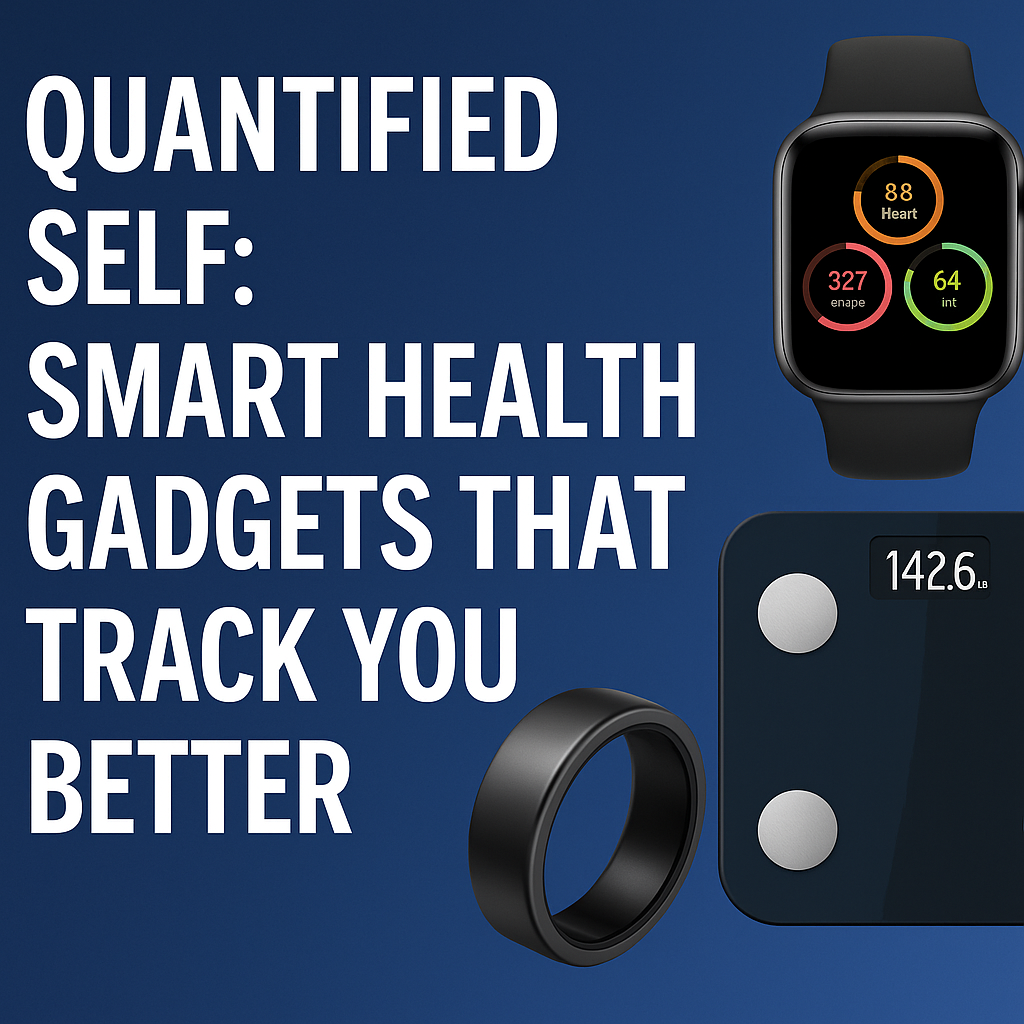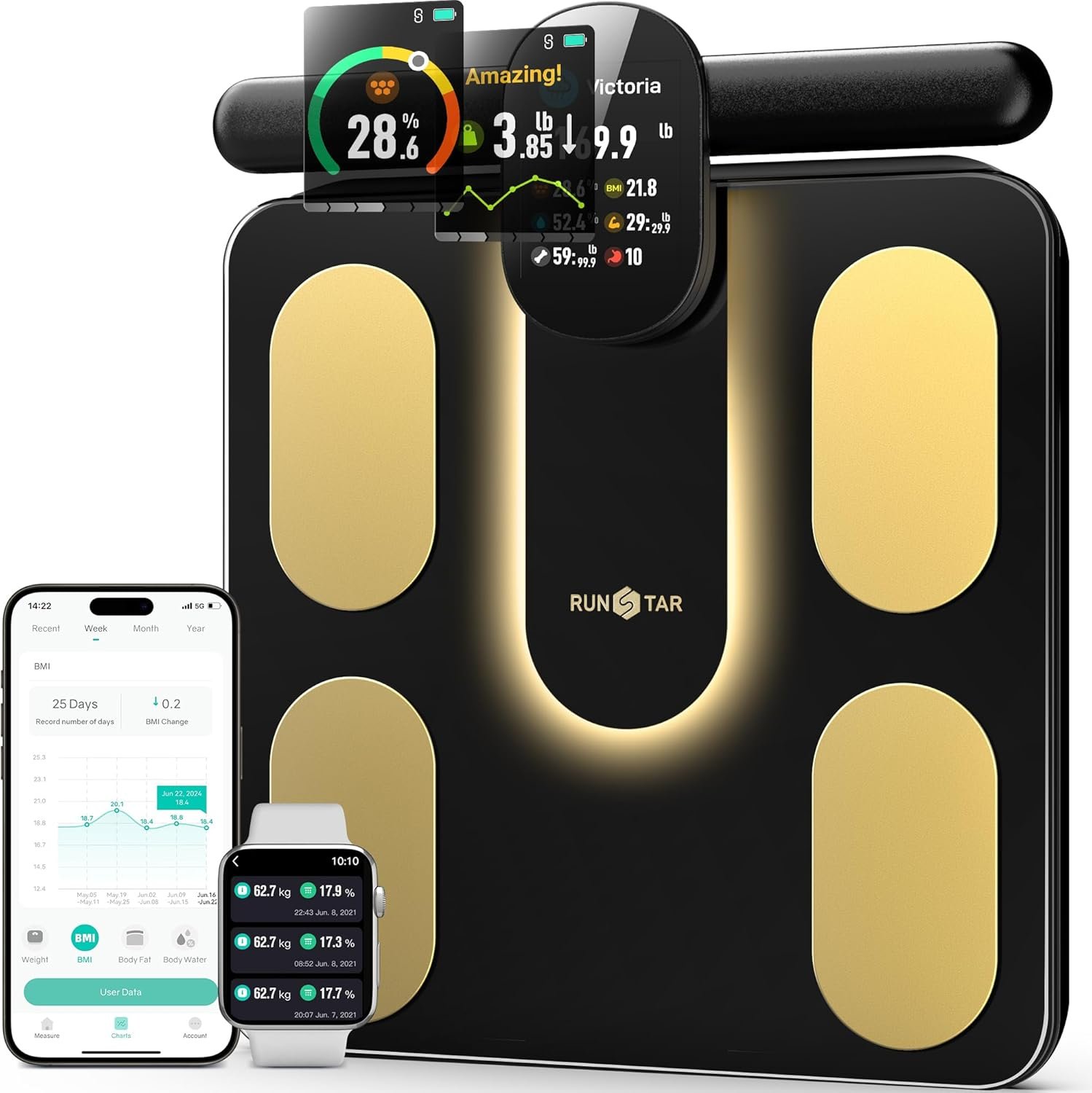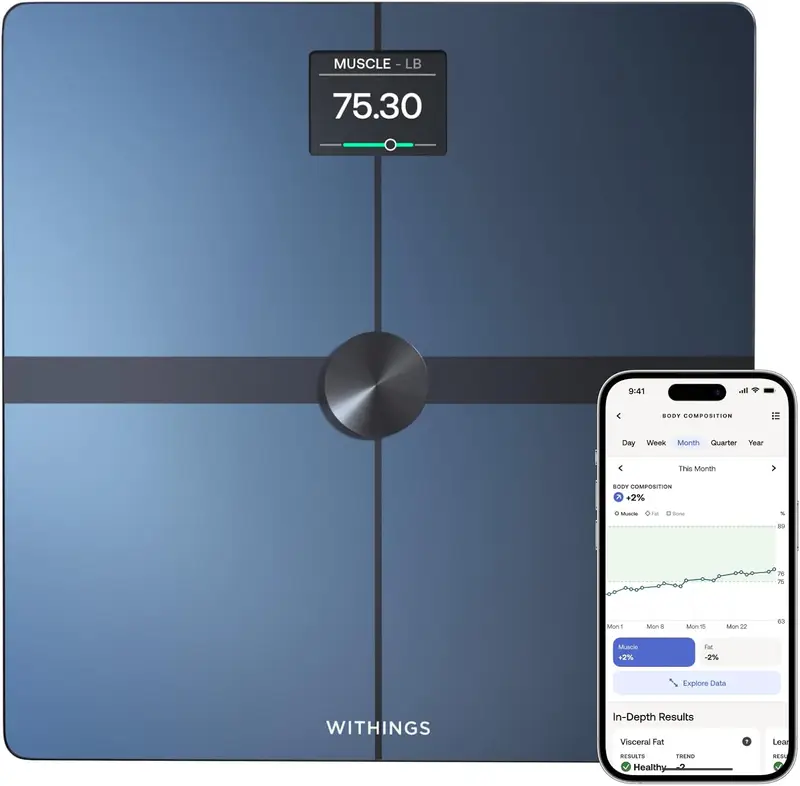
Quantified Self Gadgets: Top Health Trackers for Biohackers
Explore the best quantified self gadgets used by wellness enthusiasts like Bryan Johnson—from metabolism trackers to smart rings—for tracking, optimizing, and understanding your health.
The quantified self movement is changing how we think about our health. What is it about the Johnsons? There’s Brian Johnson—better known as the Liver King—who built a cult-like following promoting an ancestral lifestyle based on raw meat and primal workouts. Then there’s Joshua Johnson, the charismatic former NPR host who brought depth and clarity to public conversations. And of course, there’s Bryan Johnson, the tech entrepreneur behind Braintree and the audacious Blueprint project, spending millions in his quest not to die. Same surname, wildly different missions.
But this article isn’t about primal diets or radio voices. It’s about the third Johnson—Bryan—whose life now serves as a kind of living laboratory for the Quantified Self. He’s become a global icon for data-driven living, tracking hundreds of biomarkers daily. From liver enzyme levels to skin elasticity, gut microbiome balance to sleep latency, everything in his body is under surveillance.
“We are on a quest to collect as many personal tools that will assist us in quantifiable measurement of ourselves. We welcome tools that help us see and understand bodies and minds so that we can figure out what humans are here for.” — Kevin Kelly
Quantified Self: What It Means and Why It Matters
Coined in 2007 by Kevin Kelly and Gary Wolf, the term “Quantified Self” refers to a cultural movement centered around self-tracking and personal data collection. Its goal is greater self-awareness—using technology to monitor aspects of daily life once hidden or misunderstood.
Initially, this meant simple tools: pedometers, food logs, maybe a heart rate monitor. Today, it’s an ecosystem. Take the Lumen Metabolism Tracker. This handheld device uses CO2 analysis to tell you whether your body is currently burning fat or carbs. Based on your breath, it offers nutrition plans tailored to your real-time physiology. In effect, it makes your metabolism audible.
Weight and body composition are also key. The Runstar Smart Body Composition Scale provides 28 different body metrics, from visceral fat to metabolic age, while syncing via Wi-Fi or Bluetooth.

For those wanting a clinical-grade alternative at home, the Withings Body+ is often recommended by digital health experts. It’s the go-to for families or shared households thanks to its automatic profile detection and precision.

The Body Never Sleeps—Neither Should Your Data
One of Bryan Johnson’s most critical areas of tracking is sleep. Why? Because it governs everything—cognition, cellular repair, hormone balance. Enter the Oura Ring Gen3. This minimalist, titanium ring provides 24/7 tracking of sleep cycles, temperature variation, oxygen saturation, and HRV (Heart Rate Variability).
For those who prefer something on the wrist, the Google Pixel Watch 3 blends style with data depth. Equipped with Fitbit’s tracking engine, it provides continuous monitoring of steps, heart rate zones, ECG, and even real-time stress assessments.
Looking to set up your home wellness station too? Check out our Top 10 Wellness Gadgets for Your Home.
Where the Quantified Self Is Headed
We’re entering a new phase: from passive data collection to predictive and prescriptive insight. Devices are getting smarter. Algorithms are getting more personal. Soon, your ring won’t just tell you that you slept poorly—it will predict it before it happens and adjust your schedule accordingly.
We’re also seeing the rise of AI health coaches, ingestible sensors, and emotional analytics—tools that move us beyond the physical into mental and cognitive quantification. This may sound like science fiction, but it’s becoming reality fast, and Bryan Johnson is often the first to test it.
Between Insight and Obsession
There’s a danger here too. When life becomes a dashboard, and health a performance, it’s easy to lose the humanity in the data. Critics argue that we’re over-quantifying and under-feeling. That we’re treating our bodies like machines, when they are anything but.
Even Johnson—despite his 8:30 PM bedtime and 100-pill regimen—admits that longevity isn’t the point. Vitality is. Connection is. That the quantified self is not about being perfect; it’s about being aware.
Used wisely, these tools offer feedback, not judgment. They help us wake up—not just in the morning, but to ourselves.

